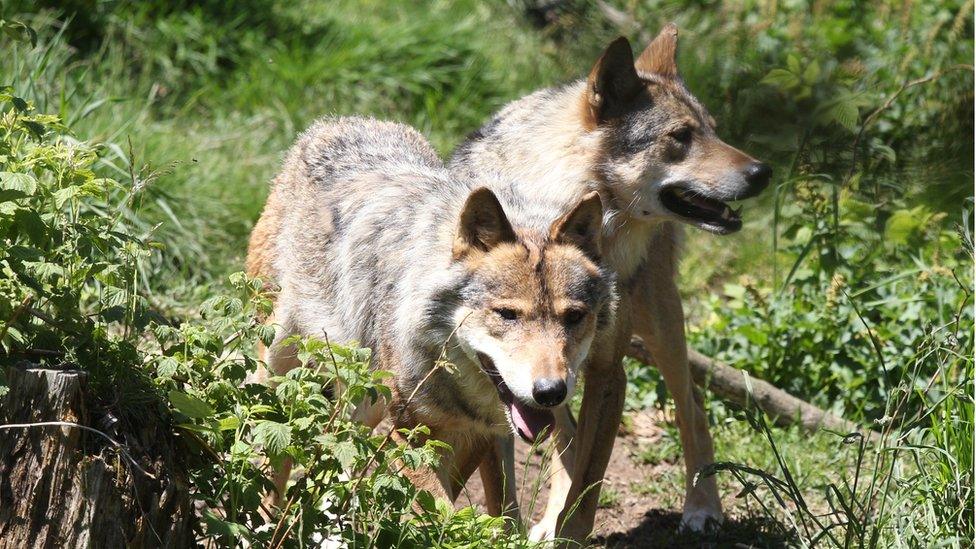Spain alarmed by French bear's attacks on sheep
- Published
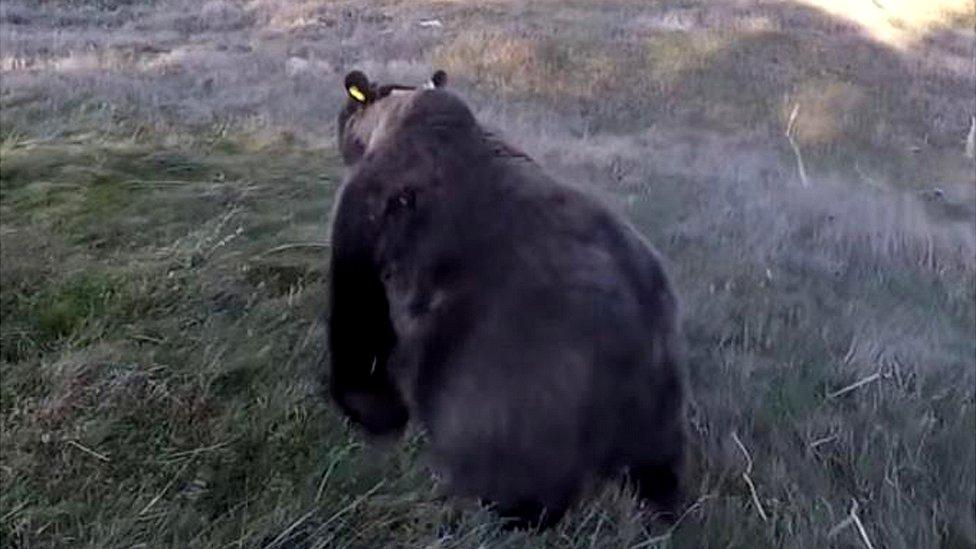
France released two Slovenian brown bears in the Pyrenees last October
A female brown bear released in the French Pyrenees has killed eight sheep in Spain, prompting emergency talks between the two countries.
Claverina is now roaming through the mountains of Navarre, having crossed from Béarn in south-western France.
Spanish environmental officials are meeting French counterparts. Some sheep are now wearing tracking devices and there are plans to deploy guard dogs.
Claverina and another female brown bear were brought over from Slovenia.
They were reintroduced in Béarn last October, because the bear population in that region is tiny - there are just two others, both male.
It is a controversial policy - there have been protests by some shepherds in both France and Spain.
Alpine Slovenia has more than 500 brown bears and is helping the French National Hunting and Wildlife Agency (ONCFS) to reintroduce the mammals to the Pyrenees, where their numbers shrank because of hunting.
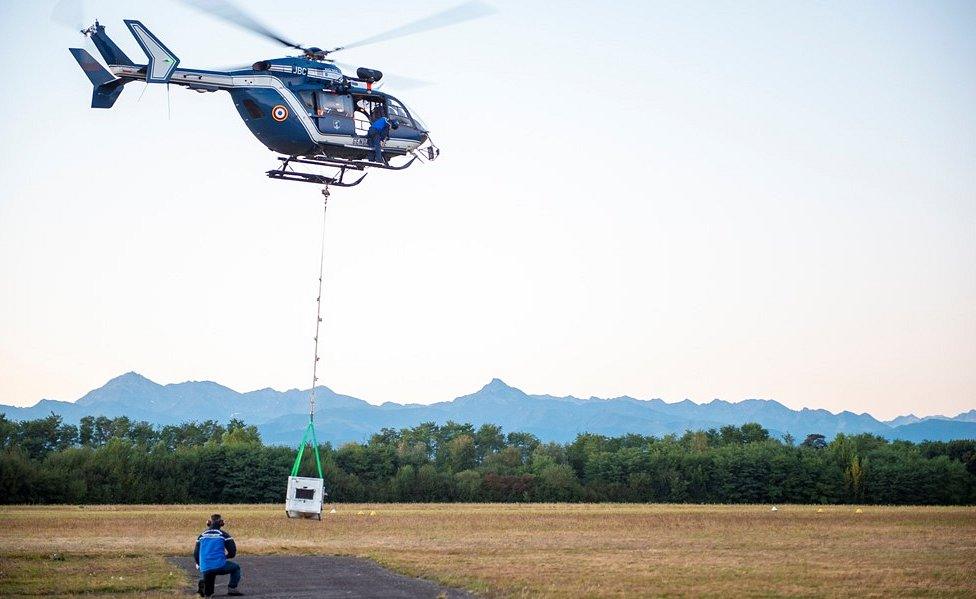
The operation to give Sorita a new home - by helicopter
A census last year found 40 brown bears elsewhere in the French Pyrenees.
Sorita, Claverina's companion from Slovenia, gave birth to two cubs in the winter, AFP news agency reports. The news came after the bears had emerged from hibernation.
DNA tests show that Claverina and Sorita are not related - an important factor in the project to restore the bear population and avoid in-breeding.
Read more on brown bears:
Both adult bears have tracking devices: they indicated that Claverina was much more adventurous than Sorita, who stayed in the high mountains on the French side of the Pyrenees.
Spanish officials want France to share the keys to the trackers, so that Navarre shepherds can follow the bears' movements. Currently they learn of Claverina's location after several hours' delay.
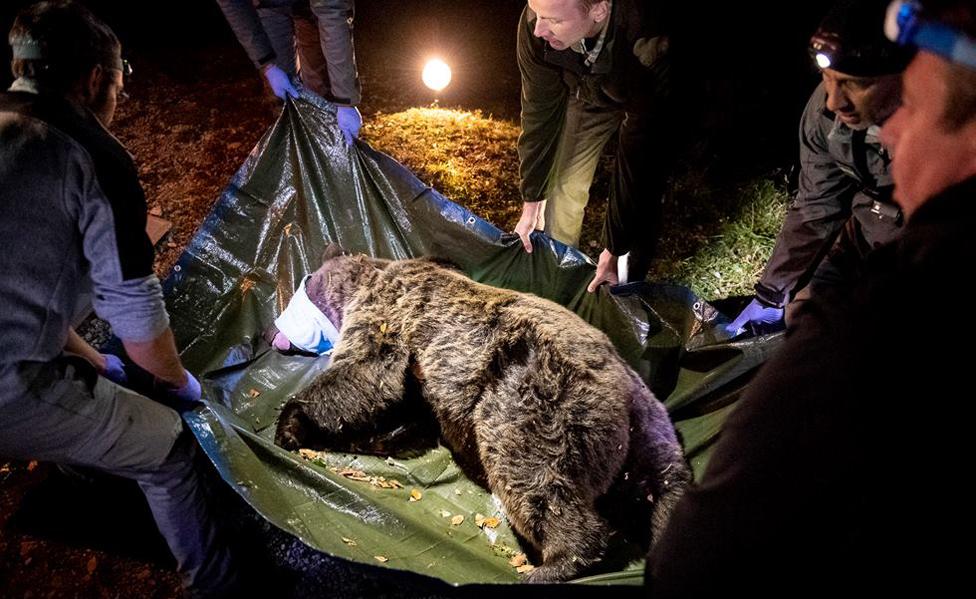
Sorita - sedated before arriving in the Pyrenees
The ONCFS says the range of a typical female brown bear is about 100 sq km (39 sq miles), which is just one-tenth the range of an adult male.
Spanish media say Claverina has attacked seven times in the Roncal area of Navarre: three attacks were in early May, and four last November, before she hibernated. The result was eight dead sheep.
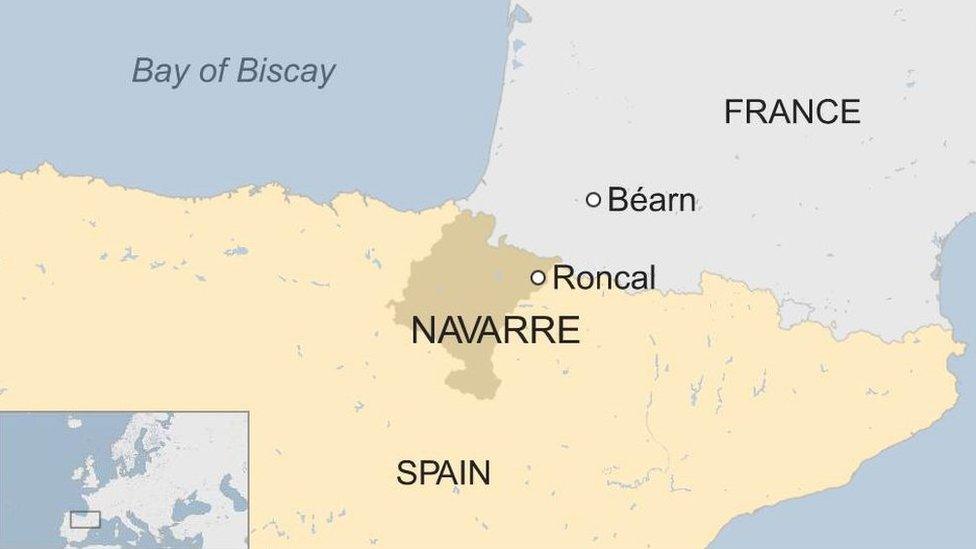
A Spanish brown bear expert, Guillermo Palomero, said the dry summer had left the two bears with few beech nuts and acorns to eat before hibernation, though Sorita had later found an oak tree with lots of acorns. He said Claverina had started attacking sheep "to put on the fat she needed" for the winter.
Recently the Navarre authorities issued shepherds with 18 geolocation devices for their sheep, and a total of 34 are to be deployed, to alert shepherds if their flocks start acting strangely.
Shepherds in the region are also getting mastiffs and some farms have advertised for assistants, to stay safe from Claverina or any other prowling bears.
Another defensive measure is to use special mobile enclosures. However, Navarre shepherds traditionally let their flocks roam freely in the warm spring and summer.
Spain's El País daily says there is also alarm amongst sheep farmers in neighbouring Aragón and Catalonia.
Besides the brown bears in the Pyrenees, Spain has about 300 in its northern Cantabrian mountains.
- Published14 August 2017
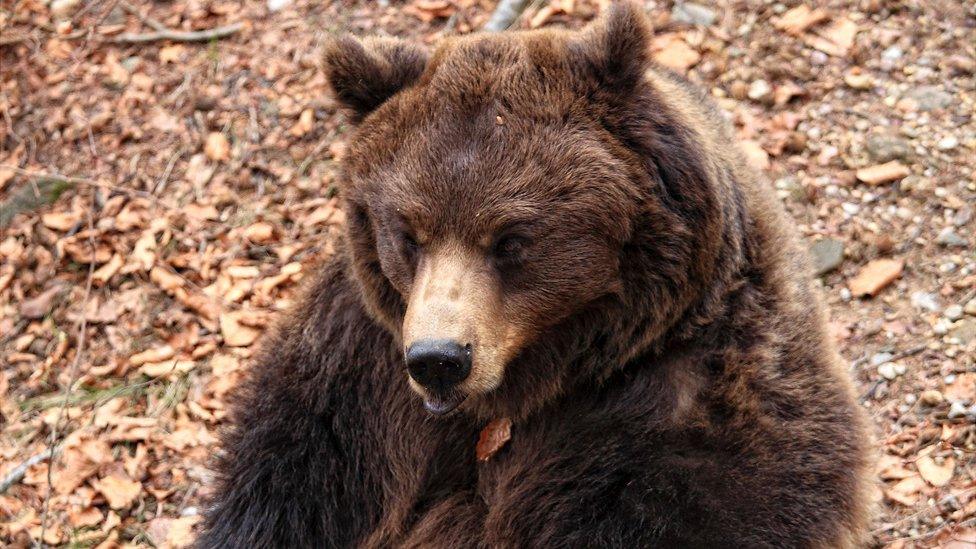
- Published11 June 2014
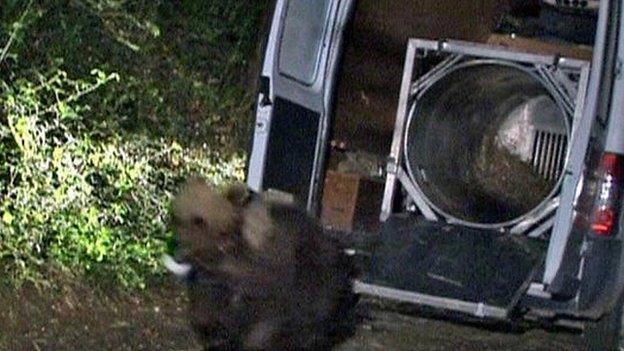
- Published13 October 2015
